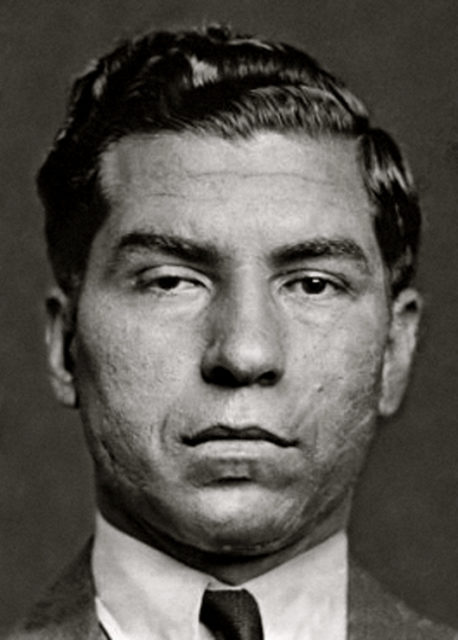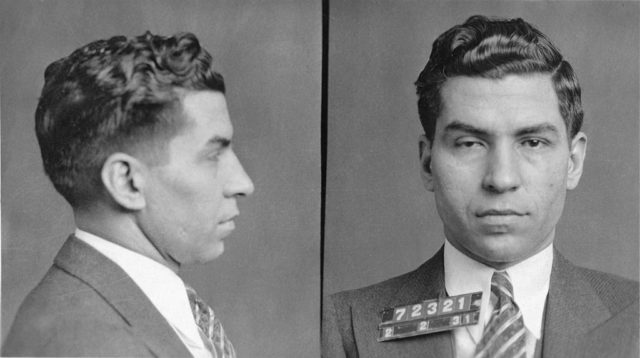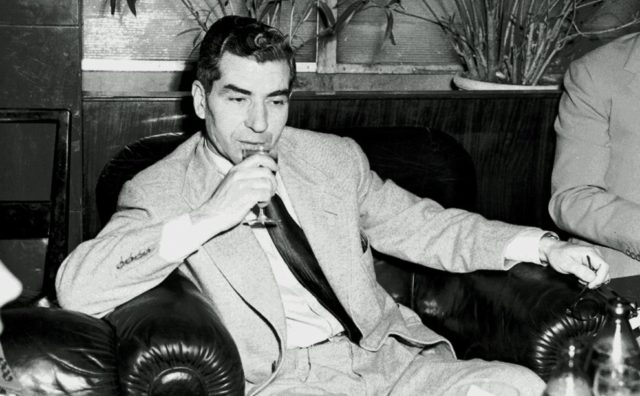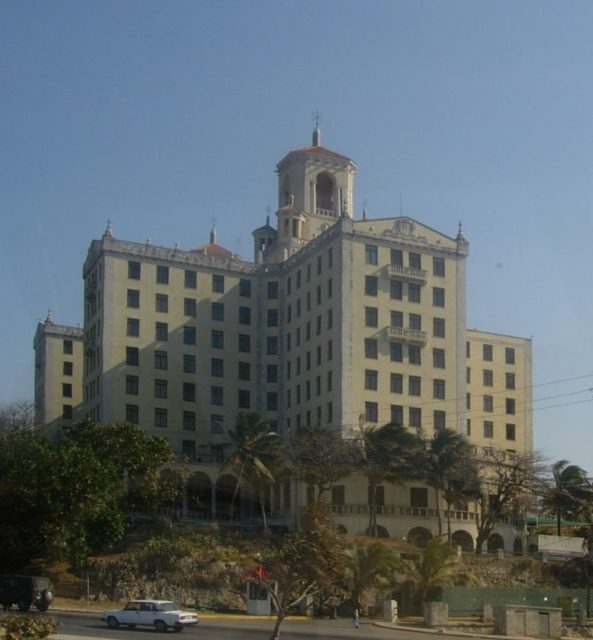Born November 24, 1897, in Sicily, Luciana’s parents had no idea of the mayhem their darling boy would create as he grew up. One of four children, he was born to a father who worked in the sulfur mines. In 1907, the family immigrated to the United States and settled in Manhattan, a place popular with Italian immigrants.
He was a bright boy and as a teenager started his own gang which, instead of getting into the business of petty crime, for 10 cents a week would offer protection to Jewish youngsters from the Italian and Irish gangs that ran wild on the streets. He soon gained the name “Lucky Luciano” – it is not known how he got this nickname, but it is suspected that it’s because he survived a vicious beating as well as a throat slashing in the 1920s. He also was arrested 25 times on charges of assault, illegal gambling, robbery, and blackmail between the years of 1916 and 1936, but spent no time in prison. Eventually, Luciano joined the Five Points Gang, which was one of the dominant street gangs of the 20th century. The gang’s home territory was rife with gambling dens and brothels; it was one of the most dangerous areas in Manhattan, with muggings night and day.

Around this time Luciano was to meet up with such characters as Meyer Lansky, Benjamin “Bugsy” Siegel, Vito Genovese, Frank Costello, and many other mafia members who would become his close friends. Eventually, Luciano started working for a well-known gambler, Rothstein, who took advantage of Prohibition and taught Luciano how to run bootleg alcohol as a business venture. With financing from Rothstein, Luciano started his own bootleg business together with friends Costello and Genovese. Rothstein was an important mentor for Luciano, as he taught him how to move in high society and helped him during a botched drug deal in 1923. In 1925, Luciano had an income of over $12 million a year, but after bribes to politicians and police, he was left with only $4 million.
His luck continued when on April 15, 1931, he was dining with top mob boss Masseria on Coney Island. Four gunmen walked into the restaurant and shot Masseria dead – Lucanio had just strolled to the bathroom. On September 10th the same year, Luciano had rival boss Marazano assassinated, and from then on was known as the “boss of bosses”.

However, forward-thinking Luciano abolished the term as he felt it did nothing but cause trouble between the different crime families. He did keep Marazano’s structure of the five crime families in New York City. As part of his leadership, he created “The Commission”, which was used as a governing body for organized crime. It was designed to keep the peace between the families by settling disputes and keeping boundaries in place.

The use of The Commission did backfire badly on Luciano in the end. New York City appointed a special prosecutor called Thomas E. Dewey, whose goal was to specifically remove all and any organized crime in New York City.
A gang boss called Dutch Schultz was rumored to be the next target of the crackdown on crime and vowed to kill Thomas Dewey. Luciano argued against this, fearing an increase in law enforcement crackdown. As Schultz wouldn’t back down, Luciano had him killed.

On February 2, 1936, Dewey launched his attack and raided at least 200 brothels – instead of releasing those arrested, as usual, he sent them all to court. Eventually, some of them implicated Luciano so as to get out of jail. Luciano was quickly arrested and indicted on 60 counts of compulsory prostitution. Nothing could get Luciano out of the mess he found himself in, not even his usual method of bribery. In the trial itself, he was exposed for lying on the witness stand. Extra policemen were on hand during any transfers while the trial ran in case of a mob rescue attempt. By the end of the trial, Luciano was convicted of compulsory prostitution and sentenced to 30-50 years in a state prison, About Education reported.
From prison, he continued to run his crime family. When his legal appeals ran out in 1938, he finally stepped down as family boss. In World War II, the US struck a deal with Luciano for him to use his influence to gather information on people entering the docks, as there were fears of Italian and German spies entering this way. Eventually, and supposedly as a reward for his help, he had his sentence reduced, and he was sent back to Italy. He stayed in Italy until his death in 1962. He is now buried in Queens, New York City. His life is the subject of many films, television series, documentaries, and books.
